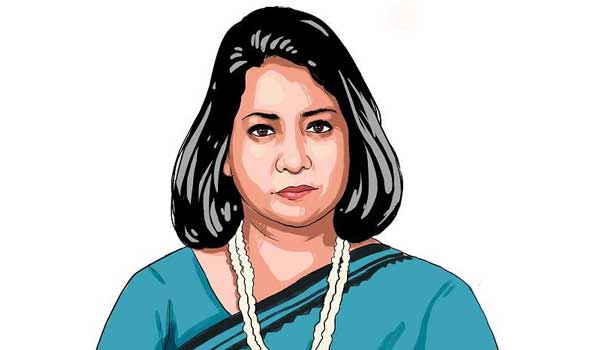Originally posted in The Business Standard on 23 March 2024

At a webinar, economists shed light on the potential impacts of bank mergers
Many bank directors and ordinary depositors are worried about the merger of relatively strong banks with “notoriously” weak ones in the country, Fahmida Khatun, Executive Director, Centre for Policy Dialogue (CPD), said today (23 March).
“The good banks are worried about the merger because they have achieved their status by adhering to rules and regulations and overcoming various adversities,” she said at a webinar titled “Impact of Bank Merger in the Distressed Banking Sector”, organised by the Forum for Bangladesh Studies.
At the webinar, economists and researchers shed light on the potential impacts of bank mergers in the country’s banking sector.
Development and economic researcher Zia Hasan, economist Jyoti Rahman, economist Dr Niaz Asadullah, and researcher Mahmudul Hasan participated in the discussion. The event was moderated by journalist Munir Haider.
The Bangladesh Bank recently developed a roadmap for bank mergers. As part of the roadmap, 10 weak banks will be merged with relatively strong ones. On 18 March, Exim Bank and Padma Bank signed a memorandum of understanding (MoU) on their merger.
Fahmida Khatun, in her remarks at the webinar, highlighted an ongoing crisis in the banking sector, including liquidity, capital, poor assets management, and bad loans. “These crises are impacting the country’s economy, leading to significant demands for banking sector reforms.”
Raising the question of who owns the weak banks, she mentioned that banks owned by influential people may be excluded from the merger list.
She expressed concern that the central bank might enforce mergers by targeting banks that are relatively strong but lack significant influence.
“In 2009, Bangladesh Shilpa Bank merged with Bangladesh Shilpa Rin Sangstha to become BDBL. However, even after rebranding, this bank is now struggling under the weight of bad loans,” Fahmida Khatun added.
She said, “Padma Bank was in the red zone, while Exim Bank was in the yellow zone. How can two struggling banks merge and suddenly become strong? That’s the question that needs an answer.”
She continued, “The Bangladesh Bank proposes that the bad assets of weak banks will be sold through asset management companies. However, it will take 18 months to develop the necessary guidelines.
“So, the question arises: has the merger issue been brought forward without guidelines in an attempt to restore good governance in the banking sector, or is there some other motive behind it?”
‘Six weaknesses in the central bank plan’
At the webinar, development and economics researcher Zia Hasan highlighted six weaknesses in the central bank’s plan to merge banks. Additionally, he expressed concern that through this process, the burden of bad assets or bad loans from weak banks might ultimately fall on taxpayers.
Zia Hasan suggested that while the central bank’s decision to merge banks is commendable, it should consider merging weak banks with other weak banks and strong banks with other strong ones.
“Merging a weak bank with a strong one could potentially lead to a deterioration in the latter’s condition, as bad banks often come with numerous liabilities,” he said.
Pointing out six weaknesses in the central bank’s plans for bank mergers, he emphasised that the Bangladesh Bank lacks adequate preparation.
He said, “Simply reducing the number of banks cannot be an effective goal; consolidation should be the primary objective. The burden of bad assets or risky lending from weak banks may ultimately be transferred to the poor.”
Furthermore, he expressed his concern about the potential consequences, saying, “This could lead to increased inflation. Moreover, banks lacking similar product portfolios and geographic diversity hold no strategic value. Without synergy, the merger will likely yield little benefit.”
Economist Jyoti Rahman said that the central bank’s merger plan fails to address the core issue. He questioned, “Who will bear responsibility for the bad assets of weak banks?”
He further said, “Everyone, including the IMF, acknowledges the increasing problem of bad loans in banks. Despite this, the government granted licences to several banks upon assuming power. The collapse of these banks did not occur suddenly; it has been looming for a considerable period.”
Journalist Munir Haider said, “The merger of Padma Bank with Exim Bank appears to have been coerced. There seems to be little benefit or profit in merging a strong bank with a weak bank. It appears futile.”


